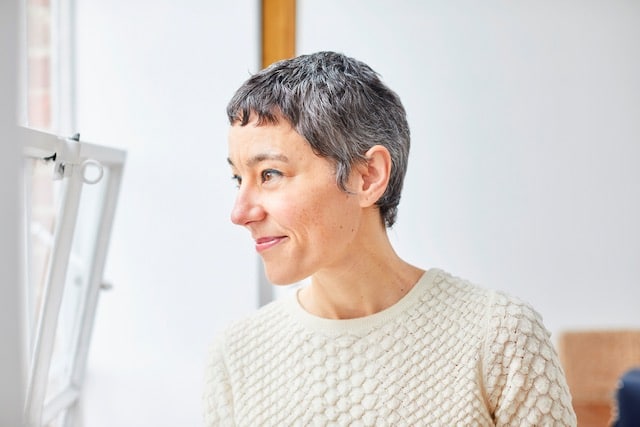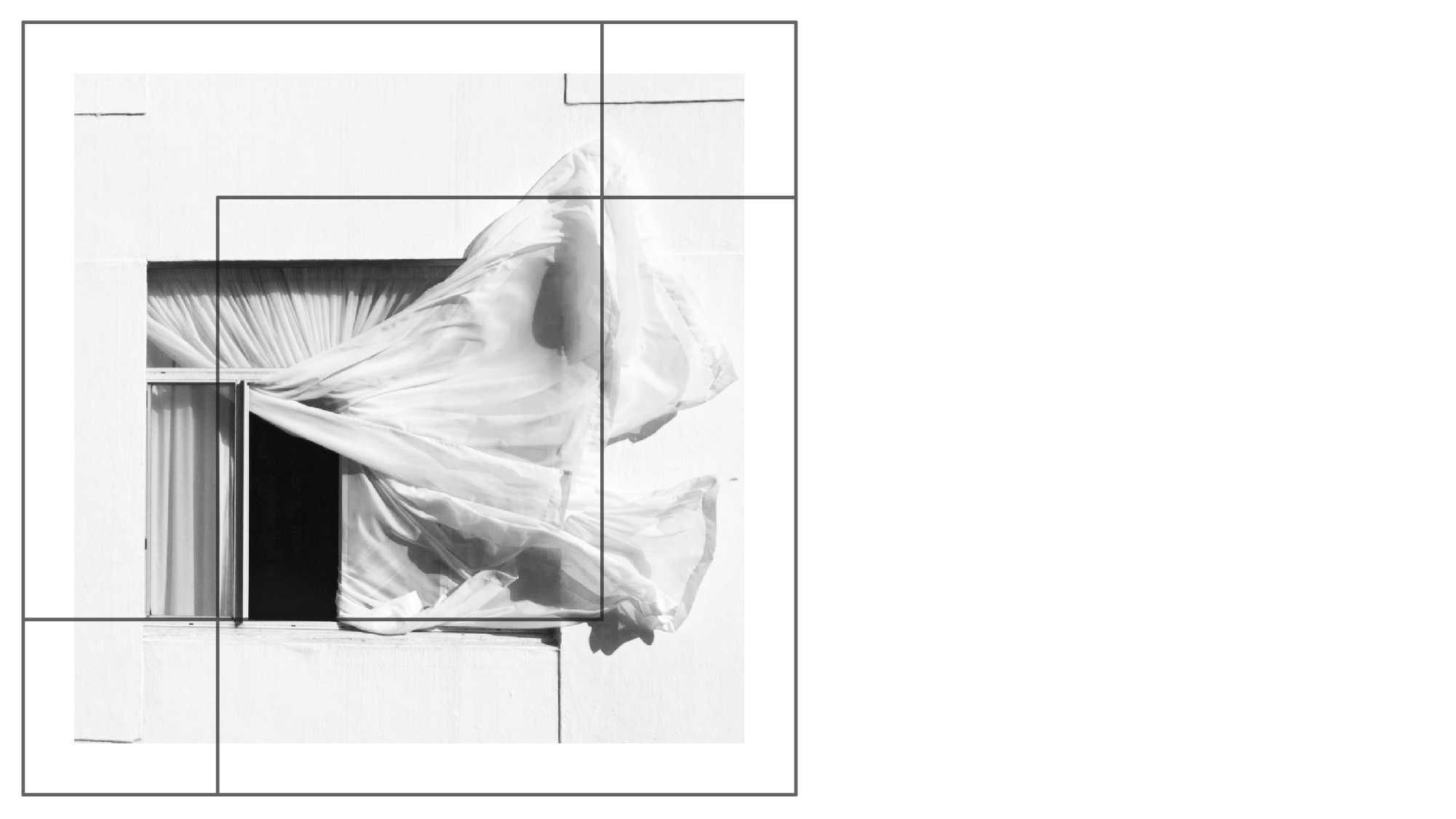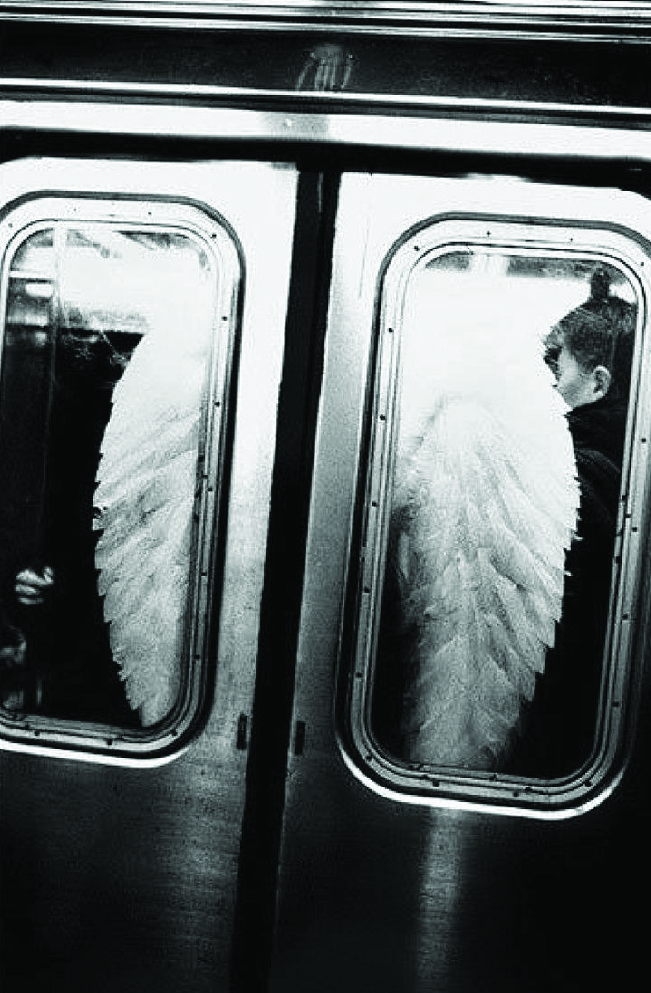"Without training it is impossible to move forward"
Editorial The Lifestyle Institute | Author: María José Núñez | September 2022
Anuska Lago Rey is a Butler and House Manager PA in a private home in London, and also teaches four modules of the TLI Postgraduate course. We have had an interesting conversation with Anuska about the importance of training, her extensive experience in high performance teaching and, of course, several curiosities that you will enjoy learning about, whether you are thinking of dedicating yourself to this profession or you are thinking about hiring a Personal Angel or even if you simply want to learn more about this exciting world!
(Sigue en español)
To begin this chat with Anuska, we would like to tell you more about her career: as mentioned, she currently lives in London, where she works as a House Manager-PA-Butler in private homes. Quality, service and management are important factors in her life, which explains her professional leap into private service in 2016. She started her career in the hospitality sector, rising to Hotel General Manager, during which she launched two resorts. Finance, staff management, hotel operations and guest relations have shaped her day-to-day life for almost 15 years.
-Now, Anuska, to kick off this interview, could you tell us what your day-to-day work is like? What are your roles and what brought you into this profession and ultimately to where you are now?
My functions are: the day-to-day running of the house, in other words, making sure that everything runs smoothly and that everything goes well; and on the other hand, my role as a personal assistant. There is no specific percentage… There are days when I do 10% and 90%; others when I do 50-50%. It depends on the day of the week. You can make a forecast but then during the day a lot of things come up that change the priority of your tasks during the day. Those would be the two basic branches: the house management (all the operations in the house, staff management, events, shopping, children’s activities…); and everything that the client asks for (for their properties, their family, some memberships, etc.). As for the day-to-day, on Mondays I look at the schedule for that week to make a forecast. Then, throughout the day, I check emails, WhatsApps, and organise the day, always having a routine that I have to keep to. Otherwise, it would be chaos. You have to be disciplined, having certain fixed points, although there are continuous changes and you have to be flexible so you don’t get overwhelmed by it. Regarding the daily routine, once I manage to Schedule the household tasks, I talk to the staff, manage lunch, dinner and event times, laundry… I take care of tasks around the house when the other staff are not there. I check my email and phone constantly because there is a continuous ‘stream’ of messages. Another important thing is to check once a task has been done, that it has been done properly.
-As a lecturer in the Postgraduate course on subjects such as Residence Management for UHNWI and Table Etiquette, how important would you say training is for a career in Lifestyle Management?
Training is essential. Unless you already have experience because you started working at a very young age or you have the ability to learn and absorb all the information you are receiving, you need training. It’s very good to have someone to open doors for you. In this case, the teachers, who are going to open up new paths for you. It’s also up to you to decide what direction you’re going to take afterwards… I mean, whether you specialise or go into something else. But without training it’s impossible to advance, unless you’re a brainbox (she jokes) and you know how to learn well from the people around you.
-After training comes experience, to what degree would you say both factors are important?
I think they are both important, 50/50. I have come across cases of people who have a lot of experience but little training; they know how to do the job but refuse to change because they have been doing their job in a certain way for 15 years and it works well for them, so they are not very flexible and want to continue doing everything their own way. On the other hand, I have come across people who have very good training but then I have started working with them and they are difficult or they don’t know how to communicate, they keep information to themselves, or they don’t work well in a team. I think here there needs to be a combination of the two.
For me, the basis (whether or not you have experience) is the personality of each person and their skills. That’s the crux every time I hire people. I don’t hire for one thing or another (education or experience). The first thing is the person, and then, I value experience and training, and I see how to complement it once hired, giving it 50% of the importance.
“The basis for this profession – whether you have experience or not – is the personality of each person and their skills”
-And going back to training, what key points would you say every PA or Residential Concierge needs to know in the process of acquiring knowledge in the Postgraduate course?
The first thing to do is a SWOT analysis, asking yourself what you like about this profession, what you are good at… Another question you should ask yourself once you start the course, is whether you are open to learning many things that you may have 0 interest in. The range is so wide that you have to absorb a bit of everything and, later on, when you are in a situation where you can choose, you do it. When you start from 0 you can’t choose because you have to learn subjects as diverse as how a building works, IT Skills, domotics, air conditioning in houses, swimming pools, pest control, private jets, clubs, clothes maintenance, managing different properties and staff… You have to have a minimum idea of how everything works. This is what the student really needs to ask themselves before starting the course.
On another level, I would mention time. This profession is very similar to the hotel industry where there are no working hours, unless you have a basic position in which you have shifts, such as hotel receptionists or floor maids. However, if you are a department head or PA, it is not a Monday to Friday 9am to 6pm working day. Flexibility of working hours is another issue that students need to consider.
-Of the subjects you teach, how would you define each of them in a nutshell?
I teach four modules. The first is ‘How to work in a private home’; the second is ‘PA (Personal Angel)’; the third is ‘Butler’ and the fourth is ‘Laundry and cleaning’. The first one consists of all the operations of a house, the structure, the people you deal with every day, the departments and the basics. In the second one, the PA one, I share a lot of real examples that have happened to me, so that you can imagine how many topics are covered. In the ‘Butler’ module, I give more theory because in general people don’t know what this figure really is. It has nothing to do with being a waiter, nor does it consist of waiting tables. In fact, it is totally different. Here I share suppliers, how to set a table, how to provide great service, how to enter and leave a room, attitude, how to manage orders, shifts, fabrics, etc. Finally, laundry and cleaning consists of an explanation of the structure, fabrics, wardrobes, wardrobe changes, external and internal laundry, the staff you deal with, the shifts to be done and the calendar of all the families, who chooses the cutlery and table linen to be used at each meal, etc…
Curiosities or anecdotes that you have come across in training or in your day-to-day professional life.
Students, when they start out, know nothing about the world of butlers. They do have some idea about the PAs. I remember a course I did before I moved to England to work as a butler; I read all the books I could find on the market because I was curious and wanted to learn – the more, the better. I see that here people start the course from 0, but they don’t prepare themselves on the subject either. This surprises me and I find it quite curious, Another recent anecdote in London is that I had arranged to meet to meet a client outside an embassy, arriving separately. We met outside to do some paperwork, as I was carrying the documentation and representing the client. She was just coming to sign. We went in and the man who attended us from the embassy talked to me all the time and thought I was the client and that she was a friend of mine or because I was dressed in formal business clothes and she was in a T-shirt, leggings and flip-flops.
And the third is that a family I worked for was totally convinced that the house had ghosts in it. It was a serious matter. They didn’t tell anyone and, the same evening, they turned up at the door dressed in black with black visors. There was a similar programme on TV and that’s the first thing I thought. They had gas canisters on their backs. They told me they were coming to the house because they had an appointment. And I closed the door twice because I didn’t know anything. I contacted my client and she said: “yes, yes, let them through the front door”. I opened the door, they came in, and it turned out that they were coming to kill the ghosts room by room. At that time there were about 12 members of staff, excluding the security people. All of them had to move from room to room. The point was that everyone was asking me what was going on and I didn’t want to tell them the truth. In fact, I said that it was orders from above and little else and that this should not leave the four walls of the house.
“If you like management and service, and also like quality, standards and luxury, being a PA is a perfect profession.”
-To those who are undecided and are starting to look at the world of Lifestyle Management and Private PA as a career option, what would you say to encourage them to take the plunge?
To take the plunge now, don’t think about it too much, because it is an exciting profession and one of the few that combines management with service. If you like both, and you also like quality, standards and luxury, it’s a perfect profession. If you enter and you regret it or there is something that is not as you thought, it doesn’t matter… Don’t worry! Once you are there, there are so many places to move once you are immersed… If you prefer a more stable or office job you can move to the Family Office or you can ask to move to their second or third residence, where you have an office schedule when they are not there, and when they are there, you are ‘full time’. There is so much scope that – for me – it is really exciting. Above all, it is worth it because you see things you wouldn’t see otherwise, being in a very unique and special environment, always learning things, seeing something new and being very up to date. The least important thing for me is to meet famous people and the most important thing is that if you have skills in private service you will be fulfilled because you reach very high standards and you are surrounded by great professionals. This is what motivates you the most because it pushes you to keep going upwards and to improve in your work. It is very rewarding because the family is very grateful when they find people who are worthwhile, motivated and dedicated. You are a driving force for the whole team because you have reached a position of responsibility where people look up to you, it is very satisfying. I don’t think there is any other profession that combines these two factors.
Copyright ©by Alberta La Grup
If you wish to re-print this article or photos, that’s fine. Just include the biography at the end of the article. Thank you!
Translation: Emily Benton
ENTREVISTA A ANUSKA LAGO REY, MAYORDOMO, HOUSE MANAGER PA Y PROFESORA EN EL POSTGRADO DE TLI
“Sin la formación es imposible avanzar”
Editorial The Lifestyle Institute | Autora: María José Núñez | Septiembre 2022
Ella es Mayordomo y House Manager PA en una casa particular de Londres, y además, profesora de cuatro módulos del Postgrado de TLI. Se trata de Anuska Lago Rey, con quien tuvimos una interesante conversación acerca de la importancia de la formación, de su amplia experiencia en la enseñanza en alto rendimiento y, por supuesto, de diversas curiosidades que te encantará conocer, tanto si estás planteándote dedicarte a esto como si estás pensando en contratar un Personal Angel; o a ti, que necesitas saber más acerca de este apasionante mundo.
Para comenzar esta charla con Anuska, queremos te contamos más cosas sobre su trayectoria: tal y como te hemos adelantado, actualmente vive en Londres, donde trabaja como House Manager-PA-Butler en casas privadas. La calidad, el servicio y la gestión rigen su vida, lo que explica su salto profesional al servicio privado en 2016. Comenzó su carrera en el sector de la hostelería, ascendiendo a Directora General de Hotel, para poner en marcha dos complejos turísticos. Las finanzas, la gestión del personal, las operaciones del hotel y las relaciones con los huéspedes han conformado su día a día a lo largo de casi 15 años.
-Ahora sí, Anuska, para dar el pistoletazo de salida a esta entrevista, ¿podrías explicarnos cómo es tu día a día profesional? ¿Cuáles son tus funciones y qué te llevó a dedicarte a ello y, en definitiva, a donde estás ahora?
Mis funciones son: el día a día de la casa, es decir, encargarme de que todo funcione bien y salga adelante; y por otra parte, asistente personal. No hay un porcentaje… Hay días que hago un 10% y un 90%; otros, que hago un 50-50%. Ello depende del día de la semana. Puedes hacer una previsión pero luego durante el día surgen muchísimas cosas que hacen cambiar la prioridad de tus tareas durante el día. Esas serían las dos ramas básicas: el house management (toda la operativa de la casa, gestión de personal, eventos, compras, actividades de niños…); y todo lo que pide el cliente (para sus propiedades, su familia, cosas de algunos memberships, etcétera). En cuanto al día a día, yo los lunes veo toda la programación que hay para esa semana para hacerme una previsión. Y después, a lo largo del día, veo los emails, WhatsApps, y organizo la jornada, siempre teniendo una rutina que has de mantener. De lo contrario, sería un caos. Has de mantener una disciplina, teniendo ciertos puntos inamovibles, aunque los cambios son continuos y has de tener flexibilidad para no agobiarte por ello. Respecto a la rutina diaria, una vez puedo programar lo que hay en la casa, hablo con el personal, gestiono horas de comida, cena y eventos, lavandería… También ando por la casa arriba y abajo cuando ellos no están, chequeo email y teléfono constantemente porque es un ‘chorreo’ continuo de mensajes. Otro tema importante es chequear una vez que se ha realizado una tarea, comprobando que realmente se ha ejecutado.
-Como profesora en el Postgrado de asignaturas como Gestión de residencias para los UHNWI y Etiqueta en la mesa, ¿cómo dirías que es de importante la formación para para dedicarse al mundo del Lifestyle Management?
La formación es fundamental. A no ser que tengas ya experiencia porque has empezado a trabajar desde muy joven o tengas la capacidad de ir aprendiendo y absorber toda la información que estás recibiendo, necesitas formación. Es muy bueno tener a alguien que te abra puertas. En este caso, los profesores, quienes te van a proporcionar otros caminos. Y luego, es tu decisión la dirección que vayas a tomar después… Es decir, si te especializas o te dedicas a otra cosa. Pero sin la formación es imposible avanzar, a no ser que seas un cerebrito (bromea) y sepas aprender bien de la gente que te rodea.
–Después de la formación viene la experiencia. ¿En qué grado dirías que son importantes ambos factores?
Creo que son los dos importantes, al 50%. Yo me he encontrado con casos de gente que tiene mucha experiencia y poca formación; saben hacer el trabajo pero se niegan a los cambios porque llevan 15 años ejerciendo su labor de una manera determinada y les funciona bien, con lo cual, son poco flexibles y quieren seguir haciendo todo a su manera. Y, por otro lado, me he encontrado a gente que tiene muy buena formación pero luego he empezado a trabajar con ellos y son difíciles o no saben comunicar, ocultan información para ellos o no trabajan bien en equipo. Con lo cual, creo que tiene que haber una combinación.
Para mi, la base (da igual si tienes experiencia o no) es la personalidad de cada uno y sus habilidades. Ese es el quid cada vez que contrato a gente. No contrato por una cosa o por otra (formación o experiencia). Lo primero es la persona, y entonces, valoro la experiencia y formación, y veo cómo complementarlo una vez contratados, dándole importancia en un 50%.
“La base para ejercer esta profesión -da igual si tienes experiencia o no- es la personalidad de cada uno y sus habilidades”
-Y volviendo a la formación, qué claves dirías que ha de saber todo PA o Residential Concierge en su proceso de adquisición de conocimientos en el Postgrado?
Lo primero es hacerse cada uno un análisis DAFO, preguntándote qué es lo que te gusta de esta profesión, en qué eres bueno… Y otra cuestión que debes hacerte es, una vez que entras, has de tener claro que tienes que estar abierto a aprender muchas cosas que igual tienes interés 0, pero el abanico es tan amplio que tienes que absorber un poco de todo y, más adelante, cuando estés en una situación en la que tú puedas elegir, ya lo haces. Cuando empiezas de 0 no puedes elegir porque tienes que aprender temas tan diversos como saber cómo funciona un edificio, bastante informática, domótica, aire acondicionado en las casas, piscinas, el control de plagas, jets privados, clubs, mantenimiento de ropa, gestionar distintas propiedades y al personal… Has de tener una idea mínima de cómo funciona todo. Y esto es lo que se tiene que cuestionar el alumno antes de entrar.
Y en otro plano quedaría el tiempo, ya que es una profesión muy parecida a la hostelería donde no hay horarios, a no ser que tengas un puesto base en el que sí tengas turnos, como los recepcionistas de hotel o las camareras de piso. Sin embargo, si eres jefe de departamento o PA, no es una jornada de lunes a viernes de 9 a 18.00. La flexibilidad de horarios es otra de las cuestiones que ha de plantearse el estudiante.
-De las asignaturas que impartes, ¿cómo podrías definir cada una de estas en breves palabras?
Yo imparto cuatro módulos. El primero es ‘Cómo trabajar en una casa privada’; el segundo es ‘PA (Personal Angel)’; el tercero es ‘Mayordomo’ y el cuarto es ‘Lavandería y limpieza’. El primero consiste en toda la operativa de una casa, la estructura que hay, la gente con la que te relacionas cada día, los departamentos y lo más básico. En el segundo, el de PA, cuento un montón de ejemplos reales que me han ocurrido a mi, con el objetivo de que vean la cantidad de temas que se tratan. En el de ‘Mayordomo’ doy más teoría porque en general no se conoce lo que es realmente esta figura. No tiene nada que ver con ser camarero ni consiste en servir mesas. De hecho, es totalmente distinto. Aquí doy proveedores, cómo montarse una mesa, cómo dar un servicio, cómo entras y sales de una habitación, actitud, cómo gestionar pedidos, turnos, tejidos, etcétera. Y el de lavandería y limpieza consiste en explicación de la estructura, de los tejidos, de los guardarropas, el cambio de armario, lavandería externa e interna, personal con el que tratas, turnos que se deben hacer y el calendario de todas las familias, quién elige la cubertería y la mantelería que vas a servir en cada servicio de comida…
-Curiosidades o anécdotas con las que te hayas encontrado dando formación o en tu día a día profesional.
Los estudiantes, cuando empiezan, no saben nada del mundo de los mayordomos. De los PAs sí que tienen algo de idea. Me acuerdo de un curso que hice antes de mudarme a Inglaterra para trabajar como Mayordomo; yo me leía todos los libros que encontraba en el mercado porque tenía curiosidad y quería saber cuanto más, mejor. Veo que aquí la gente empieza el curso y viene de 0 pero tampoco venían preparados en la materia. Y esto es lo que me sorprende como curiosidad. Otra anécdota reciente en Londres es que habíamos quedado en la puerta de una embajada, llegando por separado. Nos encontramos fuera para hacer un papeleo, pues yo llevaba la documentación y la representaba. Ella venía solamente a firmar. Entramos y el señor que nos atendió de la Embajada me hablaba a mi todo el rato y se pensaba que era yo mi clienta y que ella era amiga mía o una hija de la familia porque yo venía vestida formal y de trabajo y ella con una camiseta, unos leggins y unas chanclas.
Y la tercera es que una familia para lo que yo trabajé estaba convencida del todo de que la casa tenía fantasmas. Era un asunto serio. No nos avisaron a nadie y, la misma tarde, aparecieron en la puerta vestidos de negro con unas viseras negras. Había un programa parecido en la TV y yo es lo primero que pensé. Y llevaban unas bombonas de gas en la espalda. Me dijeron que venían a la casa que tenían una cita. Y les cerré la puerta dos veces porque yo no sabía nada. Contacté con mi clienta y me dijo: “sí, sí, hazles pasar por la puerta principal”. Les abrí la puerta, entraron, y resultó que venían a matar a los fantasmas habitación por habitación. A esa hora estábamos alrededor de 12 personas de personal, exceptuando a los de seguridad. Y a todos ellos los tuve que mover de estancia a estancia. La cuestión fue que todo el mundo me preguntaba que qué pasaba y yo no les quería decir la verdad. De hecho, dije que eran órdenes de arriba y poco más. Y que esto no se podía contar fuera de allí.
“Si te gusta el management y el servicio, y además, te agrada la calidad, los estándares y el lujo, ser PA es una profesión perfecta”
-A aquellos indecisos que empiezan a ver el mundo del Lifestyle Management y de PA privado como opción profesional, ¿cómo decirles que se lancen?
Que se lancen ya, que no se lo piensen mucho pues es una profesión apasionante porque es de las pocas que combinan management con servicio. Si te gustan ambos, y aparte, te agrada la calidad, los estándares y el lujo es una profesión perfecta. Una vez entras y te arrepientes o hay algo que no es como tú pensabas, no importa… ¡No te preocupes! Una vez entras hay tantos donde moverte una vez estás inmerso… Si prefieres un trabajo más estable o de oficina puedes pasarte al Family Office o puedes pedir el traslado a una casa que tengan de segunda o tercera residencia, donde tienes un horario de oficina cuando no están ellos, y cuando están, estás ‘full time’. Hay tanto campo que -para mi-realmente es apasionante. Sobre todo, porque ves cosas que no verías de otra manera, estando en un entorno muy único y especial, siempre aprendiendo cosas, viendo algo nuevo y estando muy al día. A lo que menos importancia le doy es a conocer gente famosa. Para mi lo importante es que si tienes unas habilidades en servicio privado te vas a realizar porque llegas a unos estándares muy altos y te rodeas de grandes profesionales. Esto es lo que más motiva porque te impulsa a seguir hacia arriba y mejorar en tu trabajo. Y es muy agradecido porque la familia es muy agradecida cuando encuentra a gente que vale, motivada y entregada. Y tú eres un motor para todo el equipo pues has llegado a un puesto de responsabilidad en el que la gente te mira, es muy gratificante. No creo que haya ninguna empresa que combine estos dos factores.
Copyright © by Alberta La Grup. If you wish to re-print this article or photos, that’s fine. Just include the biography at the end of the article. Thank you!
Translation: Emily Benton
Copyright ©by Alberta La Grup
If you wish to re-print this article or photos, that’s fine. Just include the biography at the end of the article. Thank you!
Traducción: Emily Benton
![]() We share with you an article about Alberta LaGrup and The Lifestile Institute, in L’econòmic!
We share with you an article about Alberta LaGrup and The Lifestile Institute, in L’econòmic!





